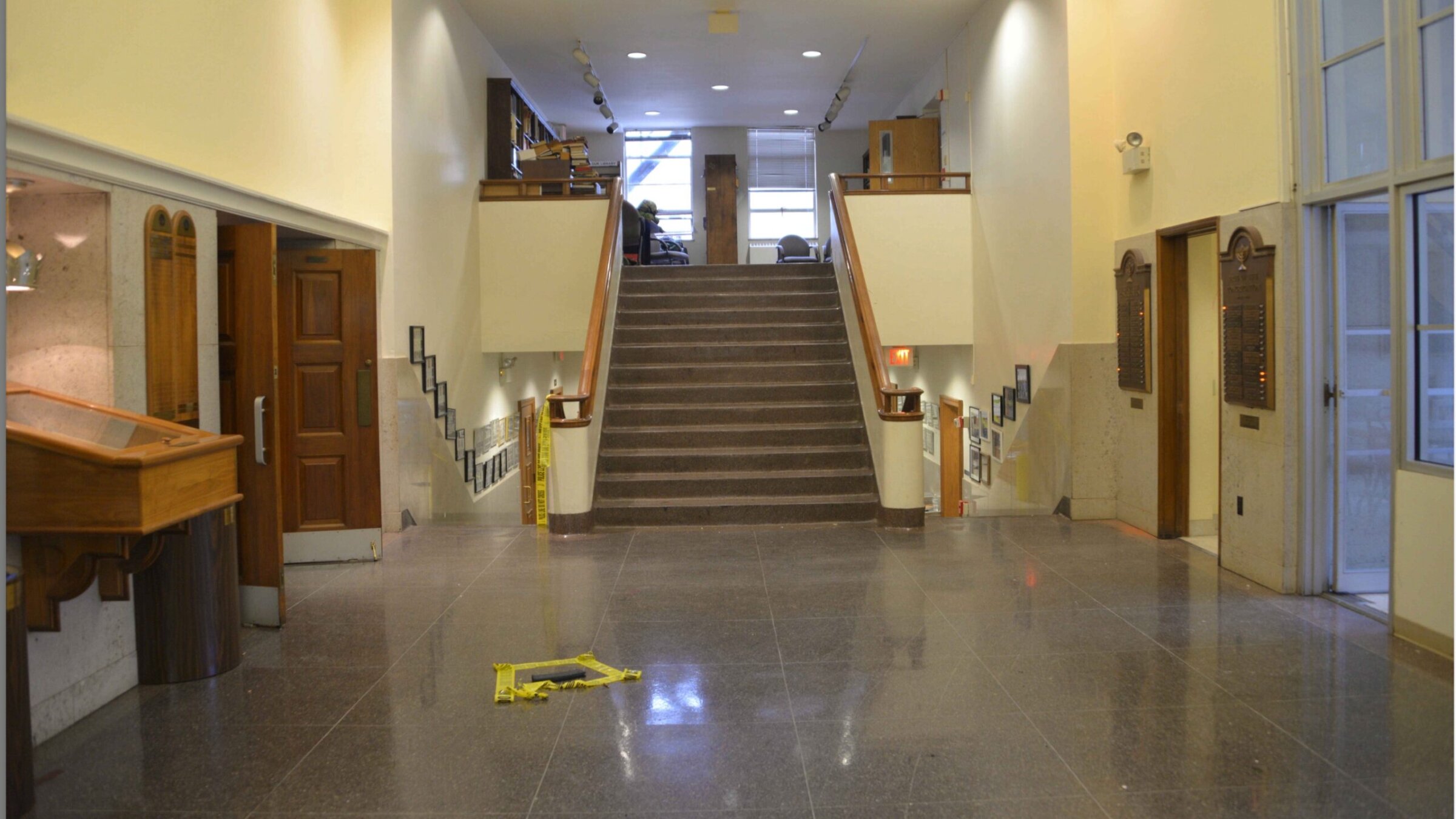Jury in Pittsburgh shooter case asks to see gunman’s weapons
The request was a signal that the jury is proceeding apace to its final verdict in the trial, which has lasted for two months

Police tape surrounds an assault rifle magazine in the aftermath of a mass shooting at the Tree of Life synagogue in Pittsburgh, Oct. 18 2018. (U.S. District Court Western District of Pennsylvania Evidence Photo)
PITTSBURGH (JTA) — Less than an hour after heading into deliberations, the jury considering whether to give a death sentence to the Pittsburgh synagogue shooter asked to see his weapons.
The request on Tuesday morning was a signal that the jury is proceeding to its final verdict in the trial, which has lasted for two months.
In the aftermath of the jury’s viewing of the weapons, which took less than 10 minutes, Judge Robert Colville discussed with the lawyers how sentencing should proceed on Wednesday. That prompted an alarmed protest from Judy Clark, the chief defense lawyer for Robert Bowers, who killed 11 Jews at prayer on Oct. 27, 2018, the worst antisemitic attack in U.S. history. “I think we should wait for the verdict, your honor,” Clark said.
It’s not clear why the jury wanted to see the weapons, but in weighing a death sentence, one of the statutory aggravating factors jurors must consider is the risk the gunman’s attack posed to others.
He entered the synagogue carrying three Glock pistols and an AR-15 rifle. Prosecutors have argued that the recklessness and breadth of the attack posed risks to others in the Tree of Life synagogue building, which housed three congregations, and to law enforcement.
The jurors asked a U.S. Marshall present where the shooter was carrying his handguns, how to load an AR-15 and whether a magazine on display was for the AR-15.
The weapons were loaded into six cardboard boxes and placed on a table near the jury box and were not visible to observers in the courtroom. Colville ordered white noise to be played so observers could not hear the jurors chat among themselves. The jurors seemed animated, pointing at the weapons, at times smiling. It’s not clear which weapons and ammunition were on display; the gunman left additional weapons and ammunition in his car on the day of the attack.
The defense asked the U.S. marshal, who answered the jurors’ questions, what they had asked and how he had replied. Colville called the jurors back in to tell them to disregard his answers, which were not properly classed as evidence or testimony. He also rejected a defense call for a mistrial.
The defendant was not in the courtroom when the examination took place, but he returned soon afterward and appeared more engaged than he has been since the start of the trial, peering around the courtroom.
The jury response form is 26 pages. The question about aggravated risk appears on the third page. It took the jury less than 5 hours on June 16 to find the defendant guilty and under two hours on July 13 to determine that his crimes merited the death penalty.
Since then, jurors have been hearing evidence that mitigating factors, including the gunman’s alleged mental illness and his difficult upbringing, should keep him from death. The government has argued the aggravating factors outweigh the mitigating factors. A death penalty determination must be unanimous; a single juror opposing the penalty means the gunman will automatically get life in prison without parole.
This article originally appeared on JTA.org.






















